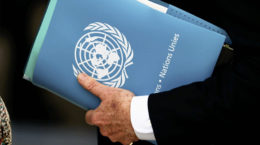Principles, procedure, rights, consequences
The aim of this review is to provide understanding of the procedure of deportation and what sort of defence is available for a person who is under the risk of deportation. Such defence is possible at three consecutive levels:
- an appeal of the decision in court of the country that ordered the deportation;
- application of the Rule 39 of the ECHR (most frequently, a delay of the deportation);
- dispute through the UN Committee Against Torture (there are high obstacles for initiating it).
At the second and third levels, the deporting country that has taken an ungrounded decision, is risking to encounter serious consequences of both political and economic character. The risk of executing such deportation is that the country may be accused of facilitating torture under art. 3 of the Convention against Torture (UN General Assembly resolution 39/46 dated December 10, 1984). Since there are over a dozen reports about mass-scale non-stop usage of torture in the Republic of Belarus, no legally sound deportation to Belarus is possible.
The deportees are not recommended to try and defend themselves on their own on the basis of this review. Even a slightest procedural mistake can lead to serious consequences. It is recommended to refer to specialized lawyers and human rights defenders with experience in such kind of procedures.
We will be grateful, if experienced lawyers and human rights defenders could add or correct this text.
We leave out of consideration indirect means of defence such as coverage in the mass media, filing petitions, informing political subjects, and so on.
There is an opinion spread between refugees that deportation is the police visiting you at night, putting you in handcuffs, unexpectedly transporting you to the border and transferring you from hand to hand to the enforcement structures of the Republic of Belarus.
It is not like that. Such actions with a gross violation of a huge number of legal norms can be rather considered as kidnapping and forceful removal upon a preliminary collusion with the power structures of the Republic of Belarus (the famous “exportation in a car trunk”).
In reality, deportation is a legal procedure, giving a deportee a number of possibilities of defence and fair trial. In the European Union, expulsion from a country is regulated by a whole series of provisions, norms and procedures in order to ensure an effective return-home policy in full compliance with human dignity.
Pending the decision to return the alien to the country of origin or another country, the migration service should examine if there are any obstacles to carry out the deportation. Already at this point, deportation of the opposition active core to the Republic of Belarus results impossible according to Art. 3 Par. 1 of the Convention.
Deportation may (and in absence of grounded doubts should) be replaced with voluntary departure. If the deportee makes an announcement of voluntary departure, as a rule, from 7 to 30 days are given for negotiations and making the decision. That term can be prolonged, reduced or not assigned at all, if there is a risk of escape, non-departure or a threat to the national security. Restriction of liberty is acceptable at any stage, but it cannot exceed 6 months. Persons detained for the reason of expulsion should be in custody separately from those detained and imprisoned under criminal charges.
Both the deportation and the voluntary departure are not necessarily carried out to the country of origin. It is enough, if any other country expresses consent to receive the deportee, for example, on the basis of a residence permit or for humanitarian reasons
In all cases, a ban to re-enter the country may be imposed. In any case, the ban to re-enter the country should not exceed five years, except for proved cases of threat to the national security of the country. Accusations of being a threat to the national security can also be challenged in court.
The next stage is actual deportation. Here the obstacles for execution of the deportation are to be examined once again, and according to much stricter criteria. As a rule, a threat to life or freedom and a temporary suspension of the procedure may become an obstacle for deportation. Use of violence during deportation must comply with the circumstances and be used only as an ultimate medium.
Norms of the EU provide for the following guarantees to the deportee:
- provision of all relevant information
- a right to defence
- legal counseling and representation (a lawyer, as a rule)
- translator if needed
- right to maintain family unity
- right to basic medical assistance
- right to basic education for minors
- right of vulnerable persons (i.e., disabled people) to have their special needs met
In most cases, deportation is connected with relatively long arrests (from several days to several weeks). Unfortunately, such practice is allowed as there is almost always a possibility of escape. Also, the host country should be requested. The host country conducts its own controls and check-ups of the information about the deportee and about the possibility to accept him or her. Such a control can be avoided in case of existence of bilateral agreements; however, agreeing on the place, time and other terms and conditions of the transfer takes some time, which can be used for an effective legal defence.
The court procedure does not differ from any other proceeding. It should be remembered that two applications must be filed to the court. Together with a statement on the essence of the matter, an application for deportation deferral should be filed before the decision of the first statement is made. All that should be done strictly through a lawyer, as the experience shows that cases of malpractice are quite frequent: for example, a “lost” statement or application, late registration of the application, an error in quoting legal norms – all that can lead to rejection according to formal criteria, and the term allowed for an appeal expires. That makes the deportation inevitable.
The same concerns filing an application to the ECHR and applying the rule 39. Although this procedure is not very wide spread, in the majority of the cases the rule 39 is applied with the aim to postpone deportation according to the same Art. 3 of the Convention against Torture. Once again, two applications should be filed in this case: an appeal against deportation + a request to apply the rule 39 to grant deportation deferral until the decision on the appeal is made. The applications should be filed through a human rights organization having an experience of working with the ECHR. Cases connected to the deportation to the Republic of Belarus have high chances of success. The problem is, that it is possible to file an application to the ECHR only after the verdict on deportation has been passed, and the procedure to apply the rule 39 takes up to 3 days. During that term, the deportation may already be carried out.
A much more complicated procedure is application of the Convention against Torture (the UN General Assembly resolution 39/46 dated December 10, 1984). The mentioned art. 3 of the Convention prohibits any deportation of any person if there is a slightest grounded suspicion of application of torture to the deportee after the deportation, and obliges to take into account the existence of torture practices in the state the deportee is being sent to. Failure to comply with the Convention raises the specter of procedures specified in Articles 20-22 of the same Convention. In such a case, the facts and the state of affairs are registered in the report of the UN Committee Against Torture (art. 24 of the Convention), and, thus, gets under monitoring of human rights organizations and into international ratings. There is a probability that a decrease in general ratings may lead to a decrease in economic ratings and corresponding consequences of both political and economic character.
The difficulty of applying to the UN Committee Against Torture is that informing of the UN committees in standard cases should be carried out through parliamentary commissions of the UN member states. That is, connections with parliament deputies through the channels of the opposition is needed. If the deportee has been a political prisoner, he or she may have a guardian deputy in the parliaments of free countries, who could initiate such a procedure.
However, every action through parliament demands quite a long period of time, that the deportee may not have. Article 20 of the Convention does not stipulate any formal requirements for informing the Committee Against Torture, which gives hope for success when informing the Committee through human rights organizations. Unfortunately, for now we have not had yet any successful experience of filing such formal statements. Fortunately, the Committee is accessible for informal communication.
Opening a dispute on violations of the Convention must be initiated by another state (Art. 21). In practice, it means that the ministry of foreign affairs of the country which is trying to prevent the deportation sends to the ministry of foreign affairs of the deporting country a written communication, starting, thus, the procedure. In practice, it is improbable, as in single cases it is much easier to accept a deportee, than to worsen diplomatic relations between countries. Application of the Art. 21 of the Convention is more probable if deportations to the country practicing torture become of mass character. Such a step will also have the same consequences of political and economic character for the deporting country.
To sum up, deportation is a procedure during which a deportee has a number of rights and opportunities for defence, including those potentially dangerous for the deporting country.
Violations of the Convention equals to facilitating torture.








